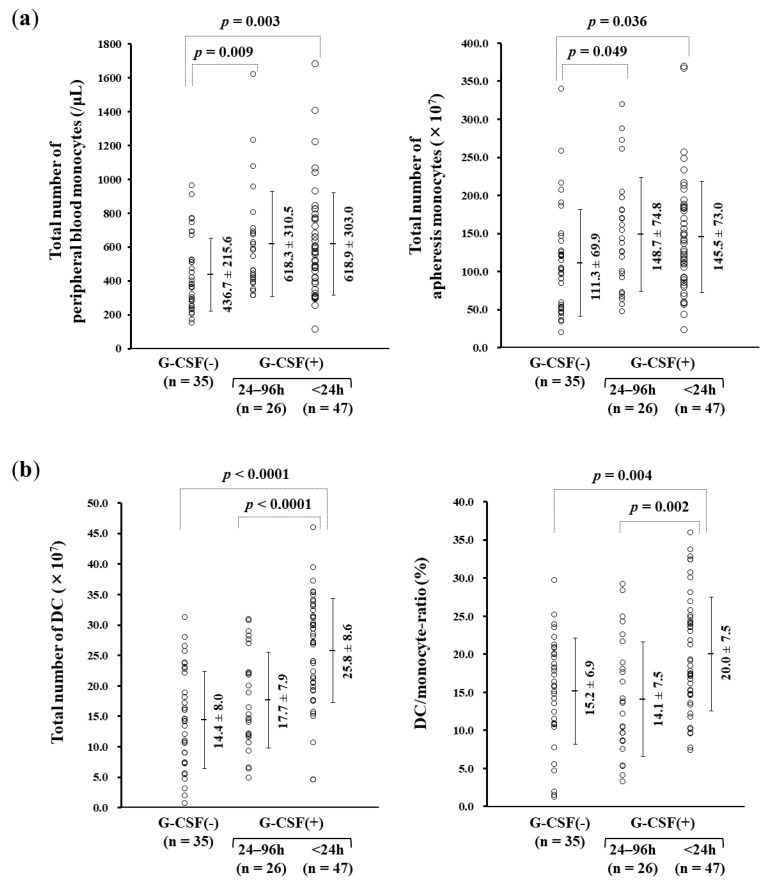Figure 3.
Effect of recombinant human granulocyte colony-stimulating factor (rhG-CSF) on the number of monocytes and the monocyte-derived dendritic cell (DC) yield. (a) The numbers of both peripheral and apheresed monocytes were higher in G-CSF-treated groups than in the non-G-CSF group. The number of peripheral blood monocytes (/μL) were as follows: G-CSF(−), 436.7 ± 215.6; 24–96 h, 618.3 ± 310.5; and <24 h, 618.9 ± 303.0 (mean ± SD). The total numbers of apheresis monocytes (×107) were as follows: G-CSF(−), 111.3 ± 69.9; 24–96 h, 148.7 ± 74.8; and <24 h, 145.5 ± 73.0 (mean ± SD). (b) The DC yield and the ratio of DCs to apheresed monocytes (DC/monocyte-ratio) were significantly higher in the 24-h than in the 24–96-h G-CSF-treated and the non-G-CSF-treated groups. The total number of DC (×107) were as follows: G-CSF(−), 14.4 ± 8.0; 24–96 h, 17.7 ± 7.9; and <24 h, 25.8 ± 8.6 (mean ± SD). DC/monocyte-ratio (%) were G-CSF(−), 15.2 ± 6.9; 24–96 h, 14.1 ± 7.5; and <24 h, 20.0 ± 7.5 (mean ± SD). (c) Effect of rhG-CSF on the monocyte-derived DC phenotype. The intensity of the yielded DCs with CD11c and CD80 was increased, while CD14 expression occurred to a lower degree in the 24-h compared with the 24–96-h G-CSF-treated and the non-treated groups. Positive ratio (%) of CD11c were 98.9 ± 1.9, 97.7 ± 6.2, and 99.9 ± 0.8 in groups G-CSF(−), 24–96 h, and <24 h (mean ± SD), respectively. The ratio of CD14+ was 2.0 ± 3.4, 3.7 ± 8.1, and 0.8 ± 1.3, respectively, and that of CD80+ was 47.1 ± 20.2, 46.5 ± 20.5, and 57.6 ± 17.0, respectively.


